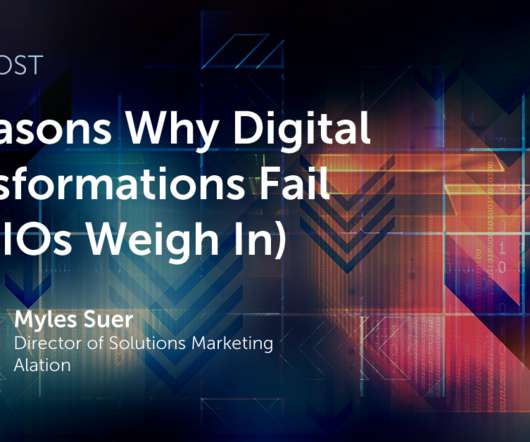8 Reasons Why Digital Transformations Fail (11 CIOs Weigh In)
Alation
DECEMBER 20, 2022
The future of business is digital. To remain relevant, organizations seek “ digital transformation ,” a business philosophy steeped in change and in which technology plays a heavy hand supporting business models and value propositions. Therefore, one assumes, digital transformation will always lead to success, right?













Let's personalize your content